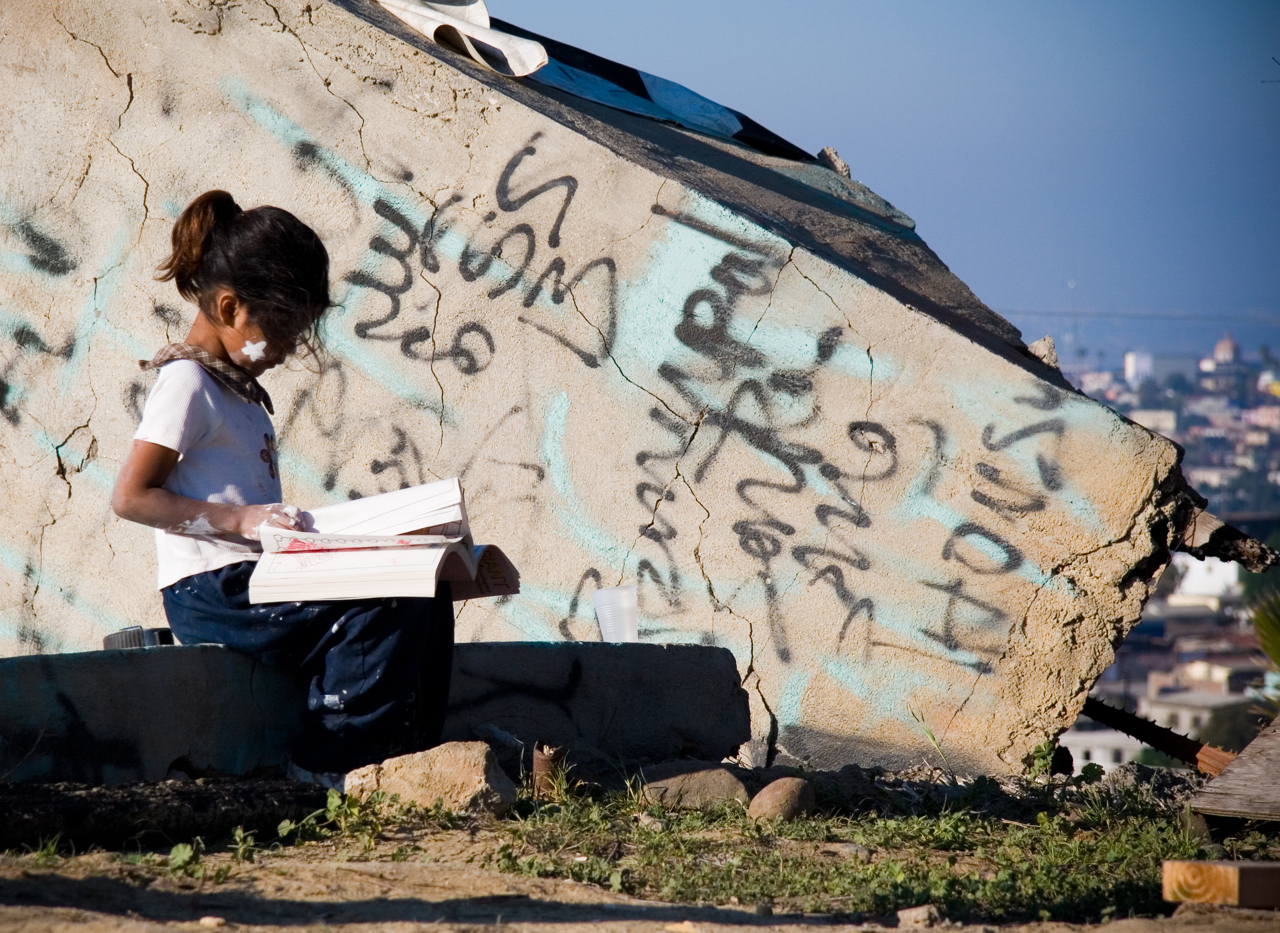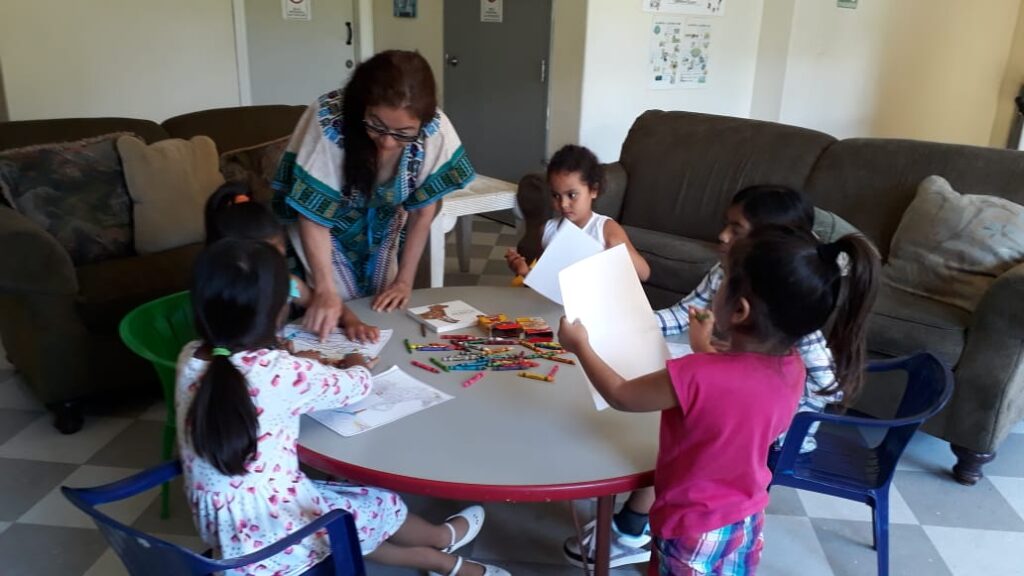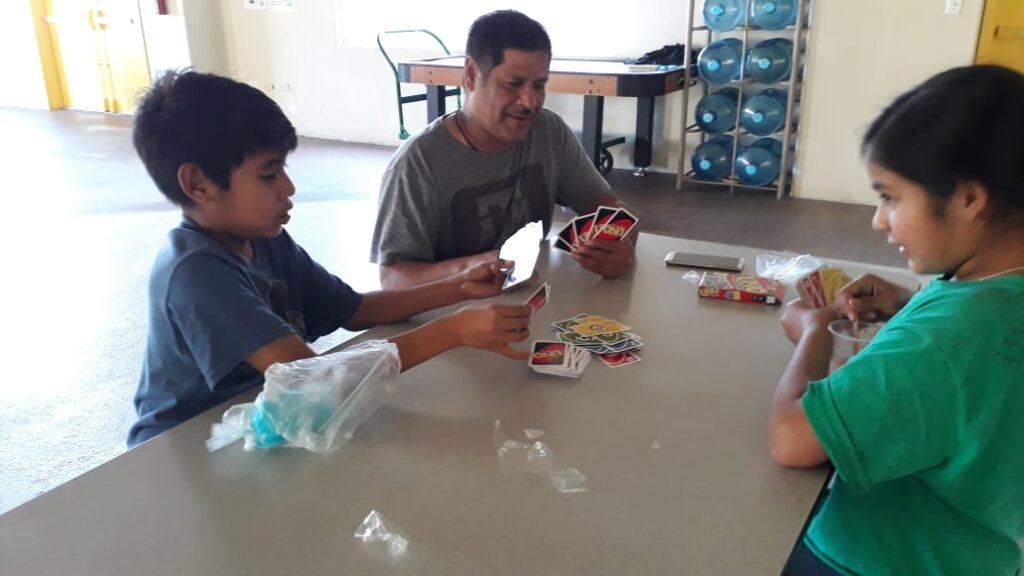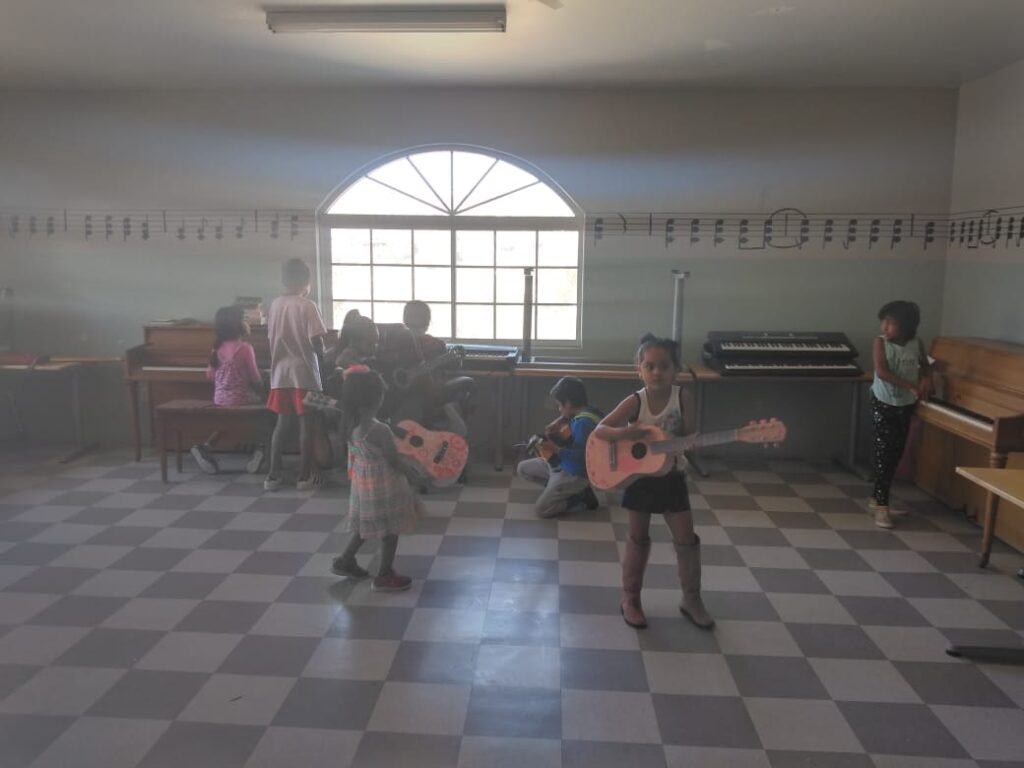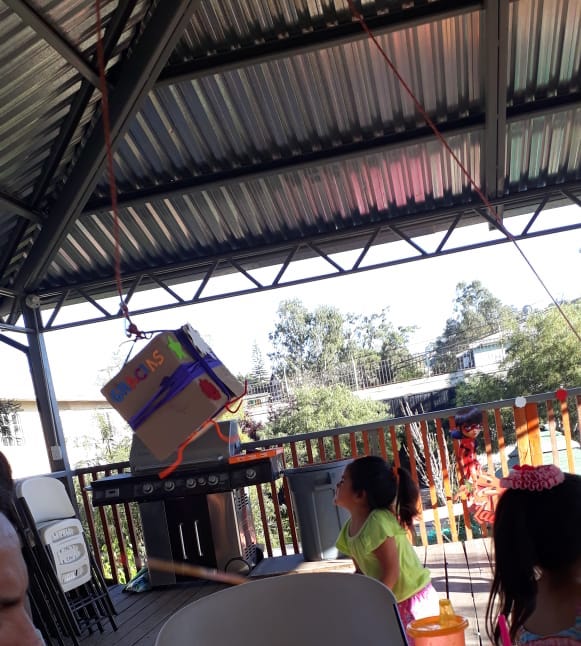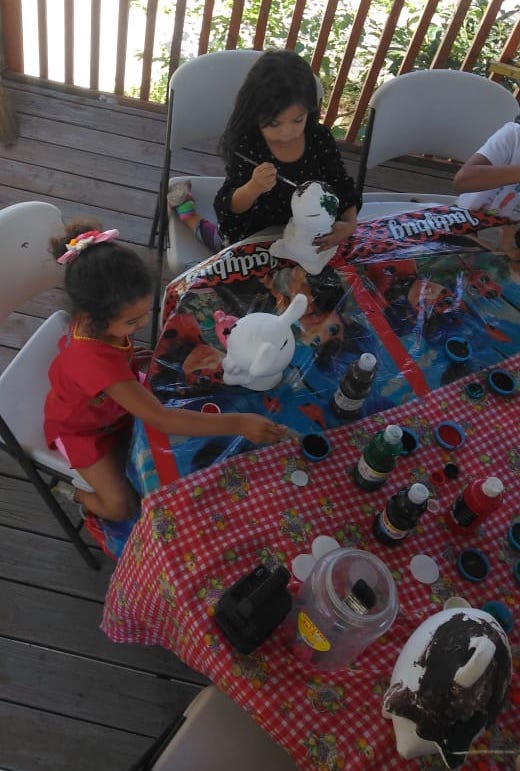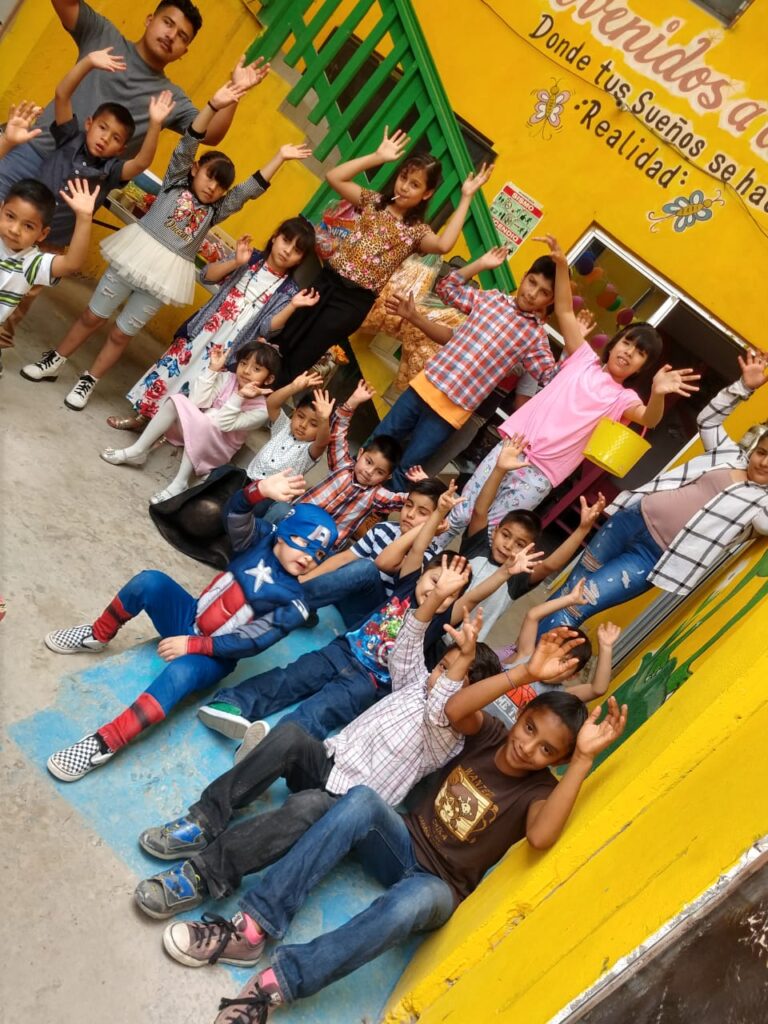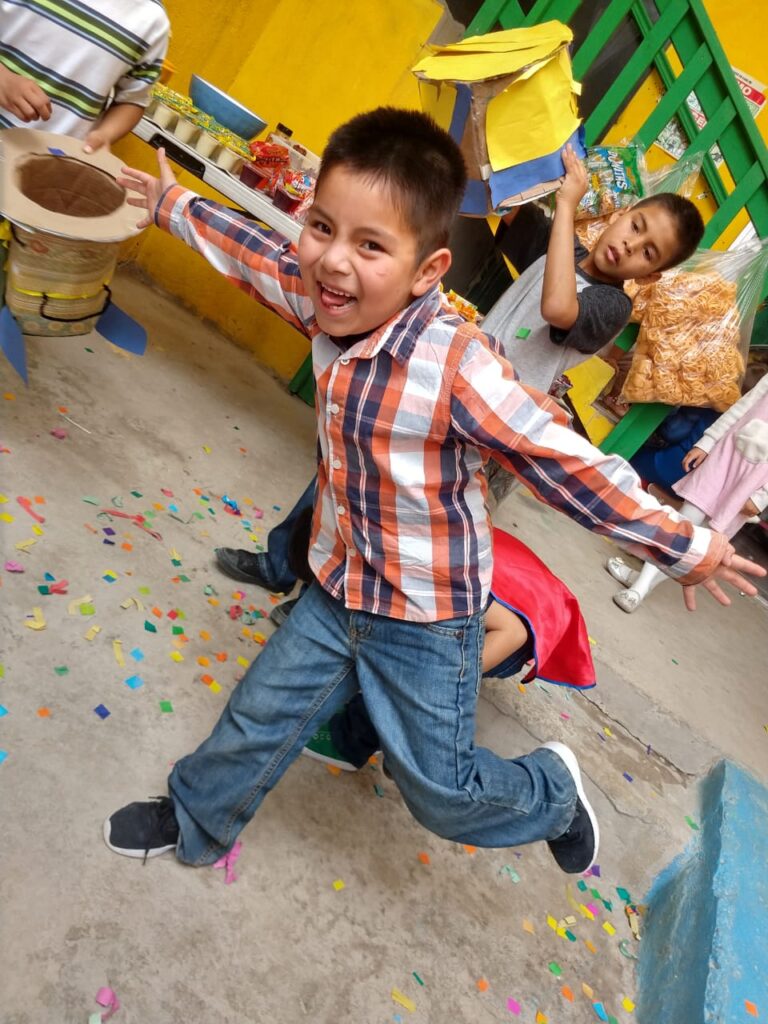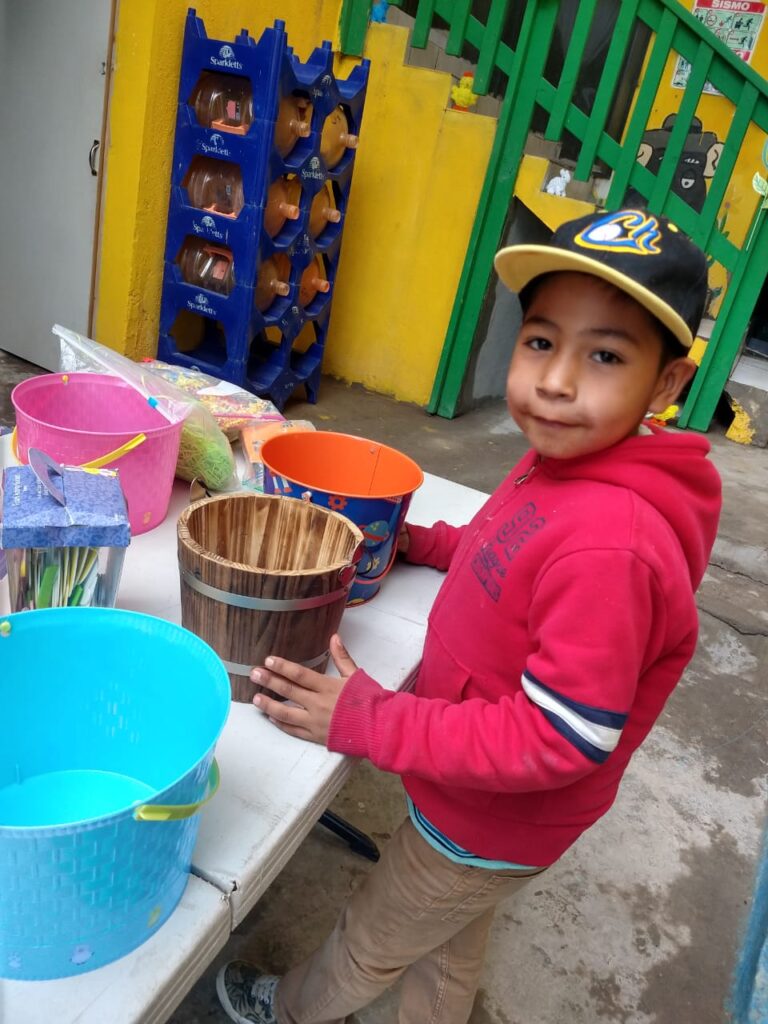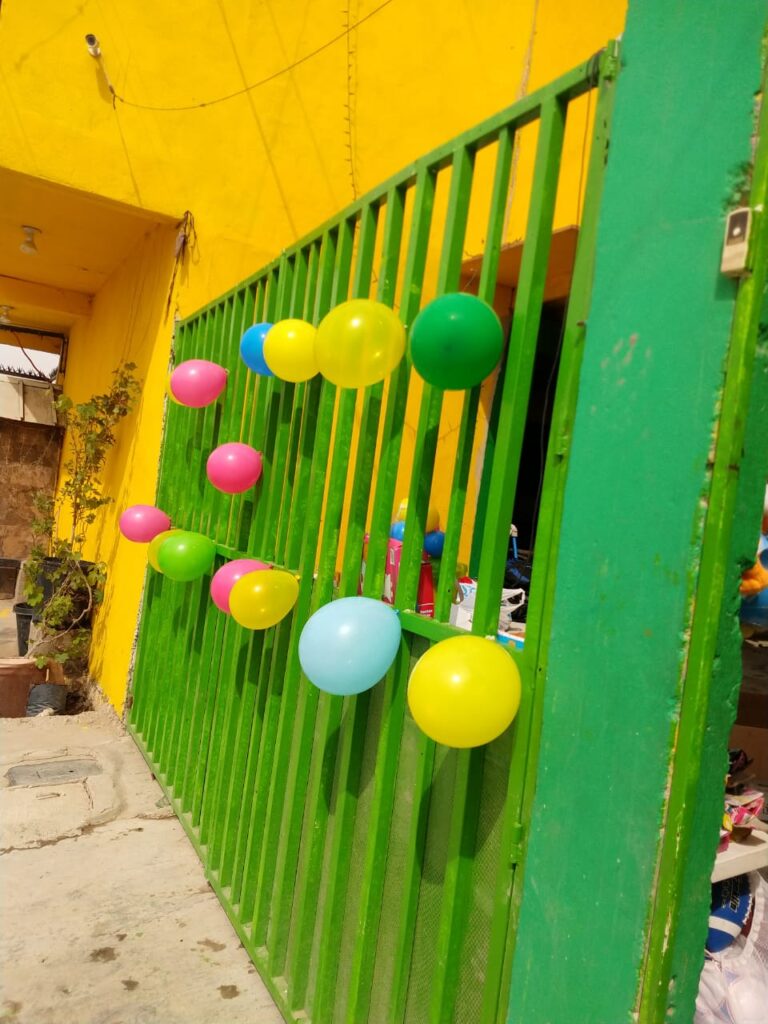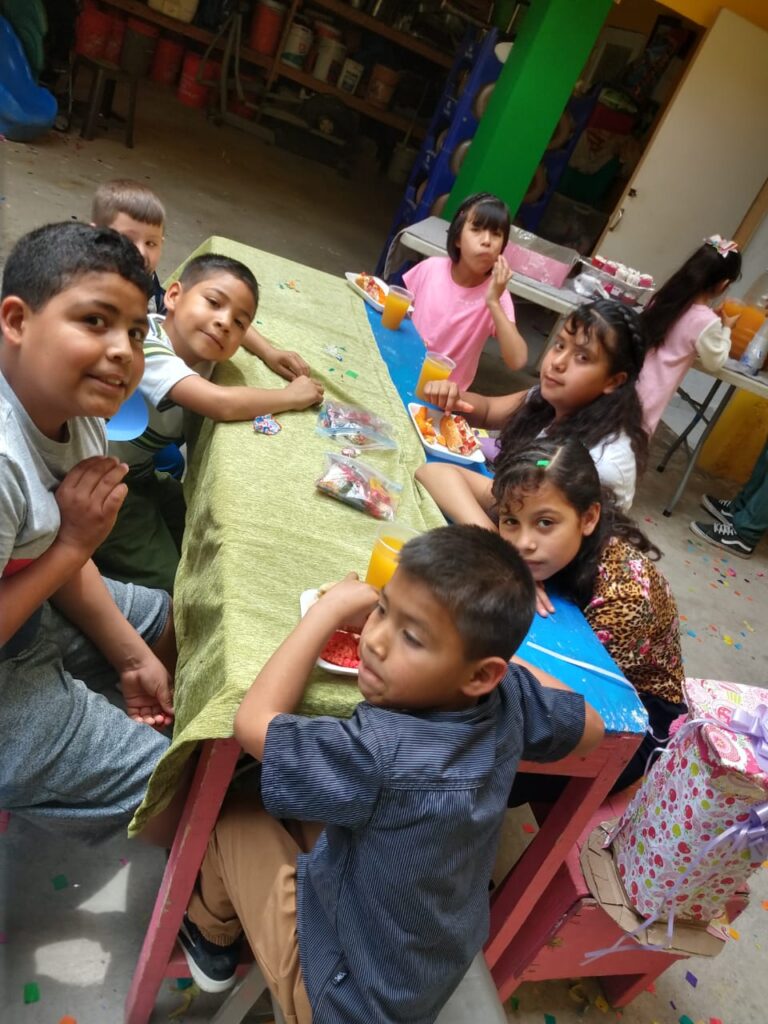As a city, Tijuana has been and will continue to be drastically impacted by COVID-19. We see disruptions to employment, education, orphanages, and in some cases regional mobility.
The schools in Tijuana have all stopped in-person classes as of several weeks ago and will most likely not return to classroom instruction this academic year. Zoraida, a Tijuana school teacher and assistant principal, says that “over the past few weeks the education system has implemented various platforms such as classes by TV, radio, and digital methods according to each family and their abilities to connect. This school year will continue and all students will automatically pass onto the next grade, per a government directive.” Adapting to these different learning methods can be a challenge with teachers unfamiliar of how to use them and the varying levels of connectivity that each family has. Some families have a TV, Internet connection, computer, and/or cell phone while others do not. To make this work, it is like a patch-work quilt where everyone is trying their best with the resources they have.
The three major sources of employment around Tijuana and northern Baja California are factories (particularly technology and medical device manufacturing), construction, and hospitality. It’s been hard to see factories temporarily shut down or drastically reduce workers’ hours due to social distancing efforts. Even more unfortunate is the production of medical devices that Mexico could utilize, but instead is contractually bound to export to other countries. This is an unfortunate by-product of special export zones and other international trade rules. Factory owners, Tijuana government, industry associations, and buyers are all trying to figure out solutions. Restaurants, hotels, and other leisure activities are and will continue to be negatively impacted as people stay home. Overall, families are using up their savings on food and other basic necessities during this time. For those that live paycheck to paycheck, the longer COVID-19 shutdowns and shelter in place orders stay in effect, the harder it will be. The families that Doxa serves in Tijuana typically do not have much or any financial buffer to weather economic disruptions.
Carmen, assistant director of Hogar de los Niños orphanage, says “COVID-19 has affected us in two major ways, being socially isolated and having more time to share with our kids.” The social isolation aspect can be hard, especially for a culture that is very relational and is accustomed to expression through face-to-face interactions. Greetings by hugs and a little kiss on the cheek used to be common. This adjustment is tough and can take a psychological toll. On the other hand, an unexpected benefit is having more time with the kids at home. Hogar de los Niños is blessed with large spaces to play soccer, basketball, and other activities. Their kitchen and pantry are stocked and there continues to be nutritious food on the table. Carmen shares that “we have watched story time videos, danced, and sang.” All activities directed through a distance program by the Tijuana Cultural Center. Ending on a positive note, Carmen has noticed a decrease in arguments among everyone.
Maria, founder of Unidos por Siempre orphanage, hasn’t let the news of COVID-19 slow her infectious and vibrant personality. She continues to organize fun activities, like an Easter egg hunt and kid’s day celebration, to keep everyone busy while cooped up at home. Unidos por Siempre has also been vigilant about increasing their cleaning efforts, hand washing, and disinfecting high-traffic areas. For active time, kids make extra use of the play structure and street out front for jump-rope and impromptu soccer games.
For the Tijuana-San Diego region, COVID-19 has also impacted mobility. The San Diego Sector, with its three land border ports of entry, is one of the busiest in the entire world with an average daily total of 149,445 persons entering the United States (2019 data, US Dept. of Transportation). While the border has remained open for US citizens, permanent residents, and work visa holders, it has been closed to those with tourist visas. This has complicated the life of many people who regularly cross the border for family, personal, or other reasons.
